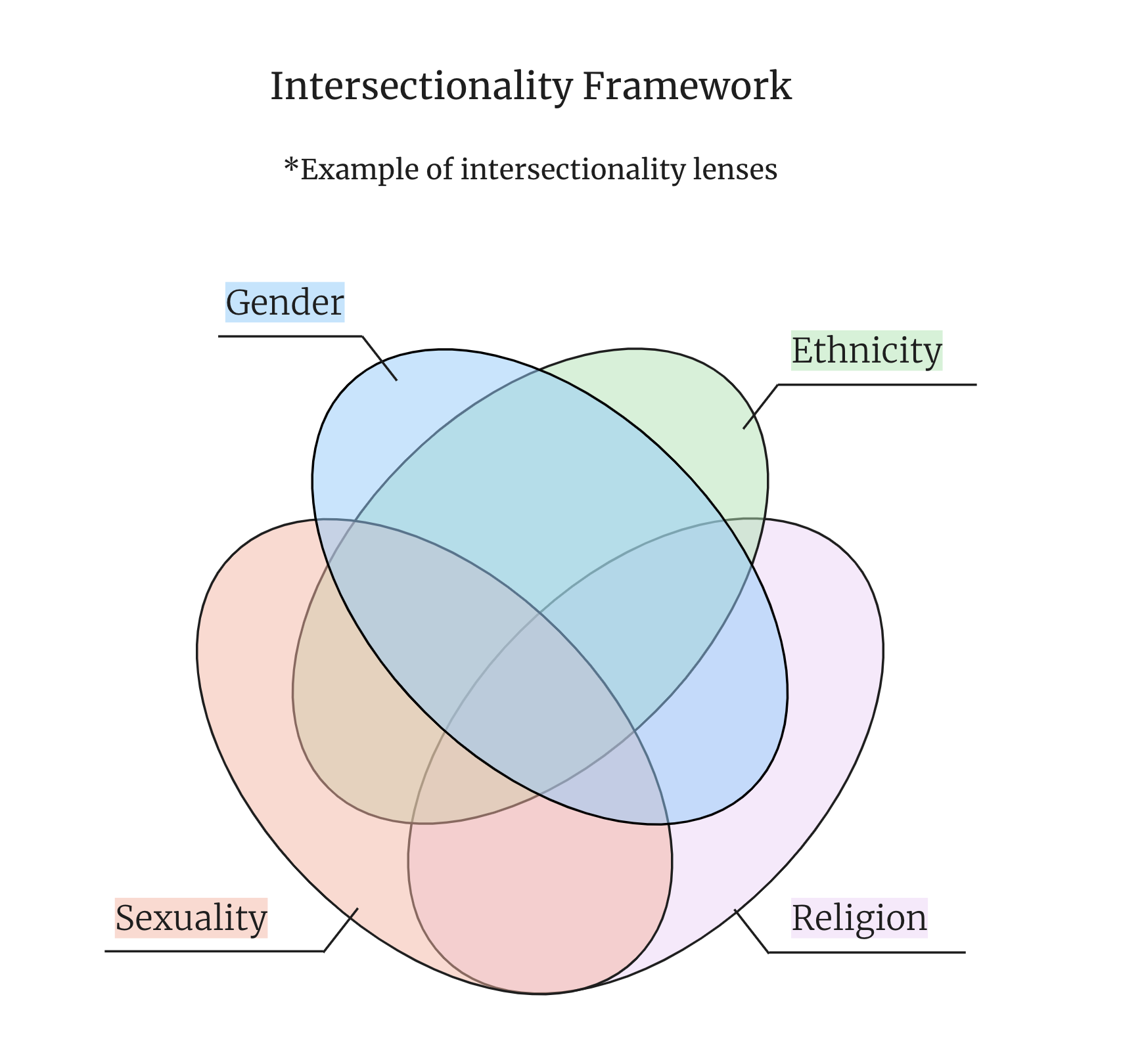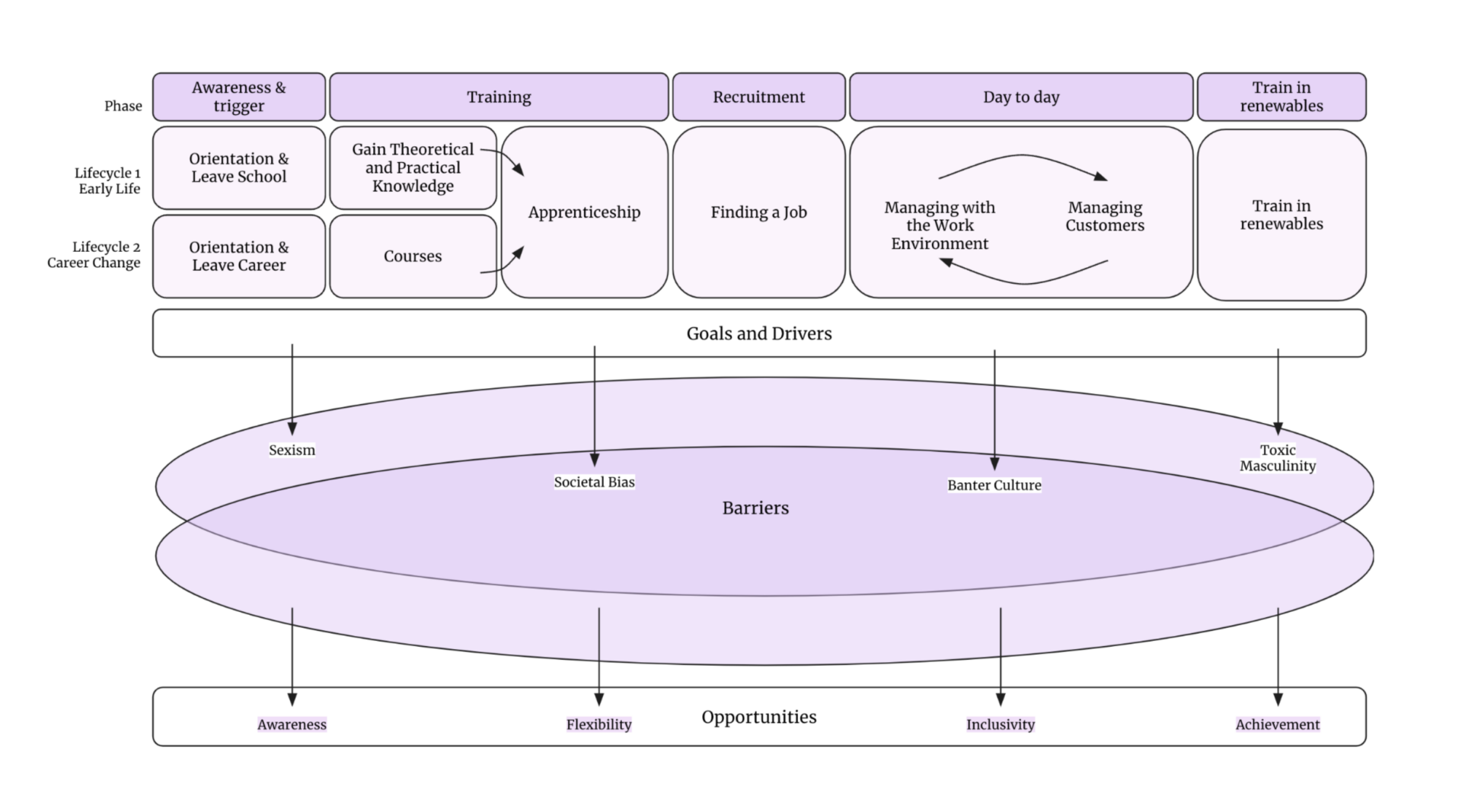Fueling Diversity: Transforming the workforce of the UK Heating Sector for Net Zero Success

We need to heat our homes without using fossil fuels. For the UK this is a huge task and the race is on to reskill the heat engineering workforce. But we need to do more than reskill. We need all the people and ideas we can get. With this in mind Energy Systems Catapult and Livework set out to explore how the UK heating industry might be able to attract and retain more diverse talent, specifically women and ethnic minorities, in order to grow the workforce and achieve the Net Zero target by 2050.

|
Challenge
How can diversity help the Net Zero transition?
|
The UK heating sector is in desperate need of skilled labour; the current workforce is highly homogeneous and supply does not meet the increasing demand. Only 5% of professionals in the UK heating sector have an ethnic minority background. 10-12% of UK’s engineers identify as female, the lowest ratio in Europe (Ferris, 2021; Norris, 2020; Cherry, 2021). Minorities do not only offer a way to grow the workforce numbers but also provide a better way of catering to the diverse population. This approach ensures that individuals can connect with those providing the services, as they are carried out by people in their community who understand their priorities.
Finally, more diversity brings innovation. This can be seen in women-led businesses pioneering new strategies in the sector already such as The Heating Hub who have tapped into the need for guidance and advice.
This project is part of ESC’s work on skills and training for Net Zero homes, and complements ESC’s Fair Futures Programme.
|
Approach
Identifying drivers and barriers through multiple diversity lenses
|
We recruited 16 participants from underrepresented groups for a collaborative investigation into how to reduce the barriers to working in the heating sector. It was important to us to encompass how identities are not static labels we can group people by. We understood how different characteristics (e.g. ethnicity, age, gender, sexuality) intersect and define our individual reality. We applied this framework to the work in order to explore how these different lenses define individual minority experiences.
Together with participants we mapped the barriers experienced by minorities throughout their training and work journey in the heating sector. We found key barriers to entering and staying in the heating industry anchored in social bias and stereotyping. These barriers were expressed through sexist and racist cultures and practices and tangible in the lack of accessible and welcoming facilities available. We also understood how professional opportunities were limited by a lack of industry effort and flexibility.

|
Outcome
The UK heating industry has untapped opportunities
|
Livework identified strategic opportunities to address these barriers. We then showed how different actors in the sector such as employers, educators and agencies could make tangible changes that could be achieved through different tactical initiatives.
One of the strategic opportunities identified was to provide and advertise more and fairer opportunities for minority groups. Alongside other tactical interventions this could be put into action by having employers working closer with minority groups in order to support them and raise awareness.
Furthermore, providing a sense of belonging, creating inclusive environments, offering flexible working and training, and providing a sense of achievement can attract and retain more diverse talent.
Implementing these strategic opportunities could help grow and diversify the workforce, positively impacting the relationship with the customers and increase the uptake of renewable solutions – altogether accelerating the journey of reaching Net Zero by 2050.

|
References
|
Cherry, A., 2021. How do we get more women into the heating industry?. [online] Boilerguide. Available at: <https://www.boilerguide.co.uk/articles/female-heating-engineers> [Accessed 13 June 2022]
Ferris, N., 2021. Why a diverse workforce would benefit the clean energy transition. [online] Energy Monitor. Available at: <https://www.energymonitor.ai/policy/just-transition/why-a-diverse-workforce-would-benefit-the-clean-energy-transition> [Accessed 15 June 2022].
Norris, R., 2020. Offshore wind industry announces targets to employ 3,000 apprentices and a more diverse workforce. [online] Renewable UK. Available at: <https://www.renewableuk.com/news/491745/Offshore-wind-industry-announces-targets-to-employ-3000-apprentices-and-a-more-diverse-workforce.htm> [Accessed 13 June 2022]

I am a founding partner of Livework having set-up the company in 2001. My focus on keeping Livework at the forefront of service design practice and ensuring we continue to create value for our clients.
Related content
